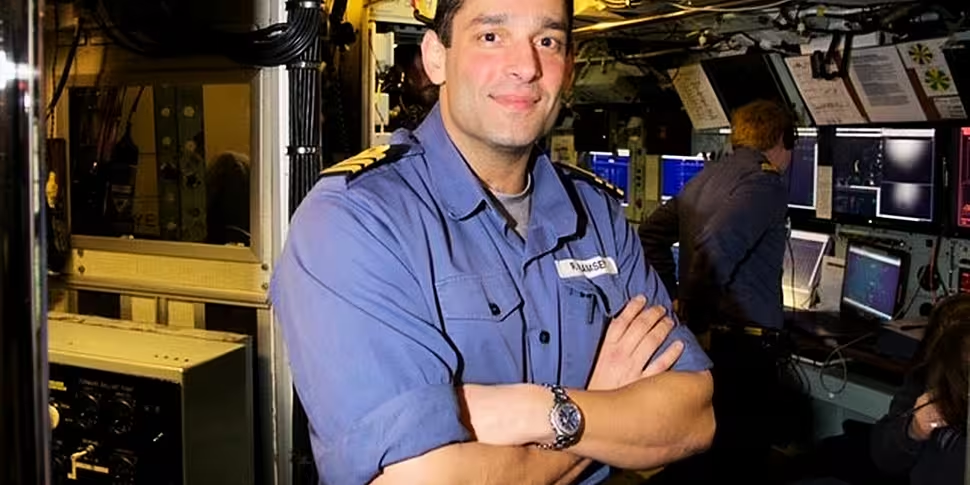A former submarine captain says routines, downtime, cleanliness and dealing with conflicts early are some of his tips for living in close proximity with others for an extended period of time.
Ryan Ramsey was a captain of the Royal Navy nuclear submarine HMS Turbulent, where missions meant crews were cut off from society entirely for upwards of months at a time.
With many people now weeks into staying at home due to the coronavirus crisis, Mr Ramsey spoke to The Pat Kenny Show to share some of his coping mechanisms and good strategies for spending long periods in close proximity to other people.
Mr Ramsey explained that while you can train somebody to operate a submarine, you can't train them about being away from home for 90 days - and therefore it's something you learn to deal with from experience.
He said: “You get into a routine very, very quickly - that routine is there to keep you safe and keep you focused. I think that translates to living at home with loved ones or friends, and even if you’re living on your own make sure you make a routine and stick to it… that gives you focus.
“With lots of people living in a house, you need to keep it clean: if you keep the whole family or team focused on cleaning regularly or daily, that gives you a clean environment and makes it slightly easier."
He also suggested that people need downtime - whether that's from 24-hour media coverage of the coronavirus or simply time away from others in your home.
He encouraged people to "find somewhere where you can be alone" even within the home setting.
'There will be things about you that irritate others'
According to Mr Ramsey, problems will arise - but the key thing in those situations is to deal with the problems early and honestly.
He observed: “There is friction on board a submarine… it’s 130 people… all placed in a tube steel together.
"We’ve got one mission which is a great focus, but individual personality traits [do] come out during that period of time.
“Early deconfliction is key: have the discussions about what is irritating you and explain it.
"Try and find a collaborative way, and give way yourself - you might not think you’re irritating, but there will be things about you that irritate others.”
He also said people should talk to people outside your close group - in a submarine that means talking to others beyond your immediate team and colleagues, but in the current situation that means keeping in touch with people outside the home even if you can't meet them in person.
Mr Ramsey noted that a household roster can also be a good thing to help clearly set out everyone's responsibilities.
He said: “This is an unprecedented situation, and we all need to live in this close environment: people need to pull their weight."
Meanwhile, people also have to be aware of the impact things they choose to do may have on others in the home.
Mr Ramsey recalled that he chose to learn to play guitar during one submarine mission.
While he was a "relatively proficient" player by the end, in the early stages that was "probably not" the case - a potential annoyance for those living and working within close quarters of him.
He explained: “The impact of that on my team was probably a little irritating. Luckily we had good communication, so they came and shared that with me.
"I’d go and play that somewhere else for a while until I got more proficient.”
Mr Ramsey had one central piece of advice that people need to keep in their minds throughout the current situation.
He said: “There’s an end to this, and there will be a recovery: although we don’t know when it is… we know it will happen, so we’ve got to focus on that."









